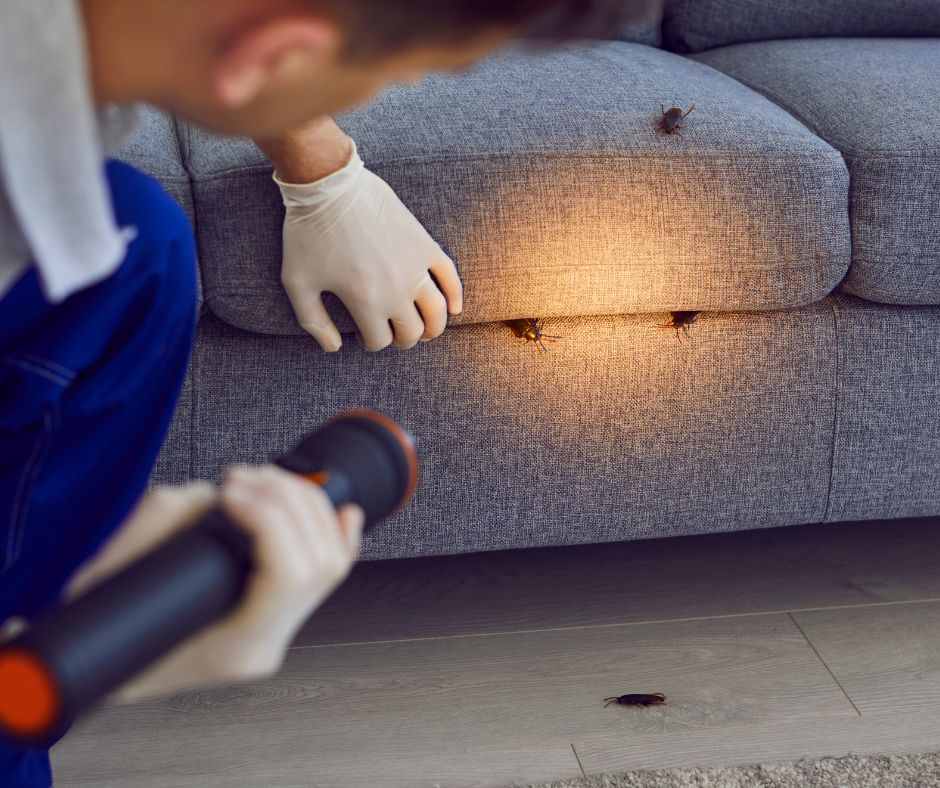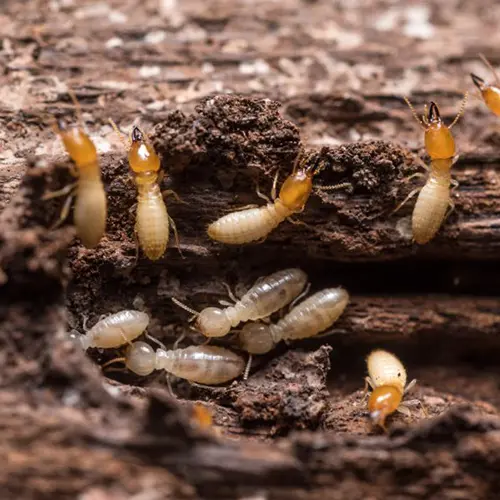Trusted Wildlife Removal Services in Port Charlotte to Easily Remove Pests
Discover the most recent Advances in Pest Control and How to Execute Efficient Treatment Solutions
In the last few years, the field of bug control has experienced substantial advancements, driven by the requirement for lasting and reliable therapy services. Ingenious approaches such as Integrated Bug Administration (IPM) incorporate green exercise with sophisticated technology, improving both efficacy and environmental obligation. The combination of clever technologies and DIY approaches has equipped people to take on insect problems a lot more properly. As we check out these developments, it comes to be important to comprehend just how best to apply these approaches in various setups to accomplish optimal outcomes. The implications for pest management techniques can be transformative.
Eco-Friendly Insect Control Options
Recently, the demand for environment-friendly pest control choices has actually risen as businesses and property owners alike look for lasting choices to traditional chemical treatments. This shift is driven by growing environmental understanding and a need to decrease the health dangers connected with artificial chemicals.

Eco-friendly parasite control approaches include a series of techniques that focus on using natural substances and techniques. Integrated Bug Administration (IPM) is one such method, incorporating biological, cultural, and mechanical methods to take care of insect populations while reducing dependence on chemicals (Wildlife removal services). This alternative approach highlights prevention with habitat control and the introduction of natural killers, thereby cultivating a balanced community
Another prominent option is making use of herb chemicals originated from plants, which often tend to be less hazardous to non-target microorganisms. Products like neem oil and diatomaceous earth have actually obtained grip for their efficiency in regulating parasites while posturing very little threats to human health and the atmosphere.
In addition, exclusion methods, such as securing entry points and preserving sanitation, play a crucial function in eco-friendly bug monitoring. By adopting these sustainable methods, services and individuals can efficiently take care of pests while advertising a much healthier planet for future generations.
Smart Modern Technology in Insect Administration
Innovation is reshaping the landscape of bug management, with clever technology arising as a pivotal pressure in boosting efficiency and effectiveness - Wildlife removal services. The combination of Net of Things (IoT) gadgets, artificial knowledge (AI), and information analytics is transforming exactly how parasite control professionals approach problems
Smart traps geared up with sensors can spot insect activity in real-time, sending out prompt informs to operators. This permits timely feedbacks, decreasing damages and minimizing the requirement for comprehensive treatments. Additionally, AI algorithms assess historic data to predict pest actions, making it possible for aggressive interventions based upon ecological conditions and problem patterns.
Drones and computerized cars are likewise playing a considerable role in parasite management, giving airborne assessments of huge locations, recognizing hotspots, and also distributing targeted therapies. These innovations not only simplify operations but also improve safety by limiting human exposure to potentially harmful chemicals.
Additionally, mobile applications empower consumers to keep an eye on parasite activity and accessibility expert recommendations, fostering a collective approach to pest administration. Overall, the adoption of clever innovation is establishing a brand-new standard in bug control, emphasizing data-driven choices and sustainable methods that eventually profit both professionals and house owners alike.
Integrated Insect Monitoring Approaches
Integrated Pest Administration (IPM) utilizes an all natural strategy to pest control, combining various methods to properly take care of parasite populations while minimizing threats to human wellness and the environment. IPM focuses on comprehending the pest life process, their all-natural adversaries, and the ecological community in which they thrive.
Among the basic parts of IPM is keeping track of pest populations through regular assessments and data collection. This permits the identification of pest thresholds, determining when intervention is necessary. Cultural practices, such as crop environment, hygiene, and turning adjustment, are crucial in decreasing parasite frequency and promoting plant health and wellness.
Mechanical controls, consisting of catches and obstacles, are additionally crucial in IPM. These techniques can physically eliminate or deter insects without the use of chemicals. When necessary, the wise application of chemical controls is utilized, concentrating on targeted treatments that minimize ecological impact.
Education and learning and collaboration amongst stakeholders, including farmers, parasite control experts, and the area, are vital for the successful execution of IPM techniques. By focusing on sustainable techniques, IPM not only addresses pest concerns however also cultivates a much healthier environment.
Biological Control Methods
Many organic control methods go to this site are significantly identified for their effectiveness in taking care of insect populaces while promoting eco-friendly equilibrium. These techniques harness all-natural killers, parasites, and microorganisms to minimize pest numbers without depending on synthetic chemicals. For example, the intro of ladybugs can effectively manage aphid populaces, while nematodes target soil-dwelling pest larvae.
In addition, making use of microbial pesticides, such as Bacillus thuringiensis (Bt), offers an eco-friendly choice for taking care of caterpillar pests. These products here particularly target pest types, lessening damage to beneficial insects and pollinators. Additionally, conservation biological control highlights improving habitats for natural enemies, such as birds and advantageous bugs, consequently motivating their existence in farming systems.
Research proceeds to disclose ingenious methods within this field, such as the usage of scents to interrupt pest breeding patterns or the development of biocontrol representatives via genetic modification. Implementing these approaches can cause lasting insect administration techniques that mitigate the dependence on chemical interventions, ultimately promoting much healthier ecological communities. As recognition of these methods expands, they are ending up being essential parts of incorporated pest monitoring (IPM) techniques, offering an equilibrium between efficient pest control and ecological stewardship.
DIY Bug Control Solutions
As property owners look for efficient means to deal with parasite problems, do it yourself insect control remedies have gotten popularity for their access and cost-effectiveness. These techniques encourage individuals to resolve invasions using easily offered products and techniques, commonly without the need for expert treatment.

Furthermore, preserving appropriate hygiene and routine inspections can avoid insect entry and nesting (Wildlife removal services). Basic methods, such as sealing cracks, removing food sources, and decluttering, can significantly diminish pest populaces. Catches, both homemade and commercially available, can also provide effective solutions for surveillance and regulating certain insects like bugs or rodents

Conclusion
The assimilation of environment-friendly pest control choices, smart innovation, and innovative administration strategies provides a comprehensive technique to reliable insect monitoring. By welcoming Integrated Pest Administration (IPM) and click reference making use of biological control techniques, together with do it yourself solutions, liable and sustainable insect control can be accomplished. These innovations not only enhance the effectiveness of bug monitoring practices but likewise add to a much healthier setting. Applying these strategies fosters a balanced environment while successfully resolving pest populaces.
Eco-friendly pest control approaches include a variety of techniques that focus on the usage of natural substances and techniques. Integrated Bug Management (IPM) is one such approach, incorporating biological, cultural, and mechanical techniques to handle pest populaces while reducing dependence on chemicals. As understanding of these techniques expands, they are becoming integral parts of integrated parasite administration (IPM) strategies, supplying a balance in between effective parasite control and environmental stewardship.
The assimilation of environment-friendly pest control alternatives, smart innovation, and innovative administration strategies offers an extensive strategy to efficient bug management. By accepting Integrated Parasite Management (IPM) and using organic control methods, together with Do it yourself solutions, sustainable and accountable insect control can be attained.